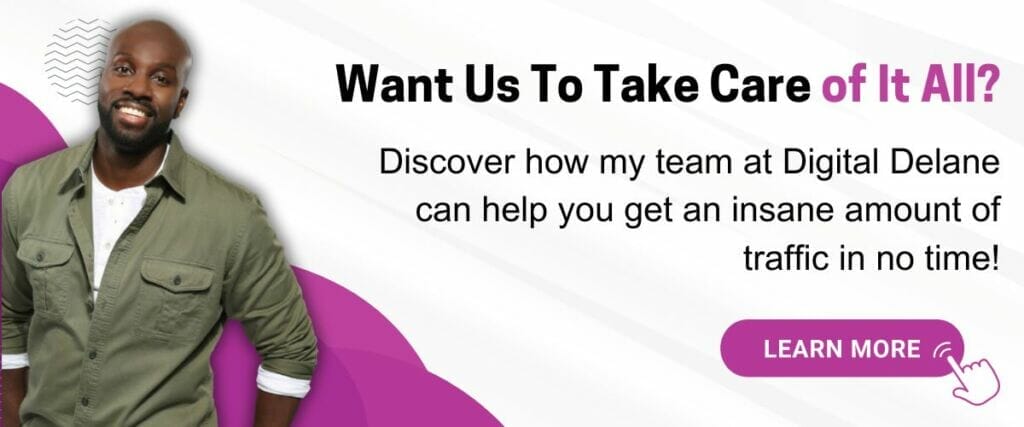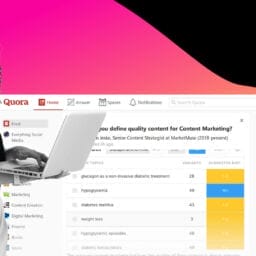Digital Marketing to Promote a Nonprofit Organization

In today’s digital age, nonprofit organizations are increasingly turning to digital marketing to promote their causes and reach a wider audience. With the power of the internet and social media, nonprofits have the opportunity to connect with potential donors, volunteers, and supporters on a global scale. Digital marketing strategies, such as social media advertising, email campaigns, and search engine optimization, allow nonprofits to raise awareness, increase donations, and drive engagement with their target audience.
In this article, we will explore the various digital marketing tactics that nonprofit organizations can utilize to effectively promote their causes. From creating compelling content to leveraging digital advertising platforms, we will discuss how nonprofits can use digital marketing to highlight their mission, impact, and initiatives. Additionally, we will examine the importance of creating a strong online presence and cultivating a community of supporters through digital channels. By harnessing the power of digital marketing, nonprofit organizations can elevate their visibility and ultimately make a greater impact in the world.
Digital marketing to increase awareness, attract donors, and engage volunteers for Nonprofit Organizations


Nonprofit organizations can utilize digital marketing strategies to increase awareness, attract donors, and engage volunteers effectively. First, they can use social media platforms to share impactful stories, success stories, and the impact of their work. By creating compelling content and using targeted advertising, nonprofits can reach a larger audience and raise awareness about their cause. Additionally, they can utilize email marketing to keep donors and potential donors informed about their projects and the impact of their contributions.
Nonprofits can also leverage search engine optimization (SEO) and content marketing to improve their visibility online and attract more traffic to their website. Finally, they can use digital platforms to recruit and engage volunteers by showcasing the opportunities available and the impact of volunteering. By effectively using digital marketing, nonprofit organizations can effectively expand their reach, attract more donors, and engage with volunteers who are passionate about their cause.
Understanding Your Target Audience
Importance of Understanding Your Target Audience
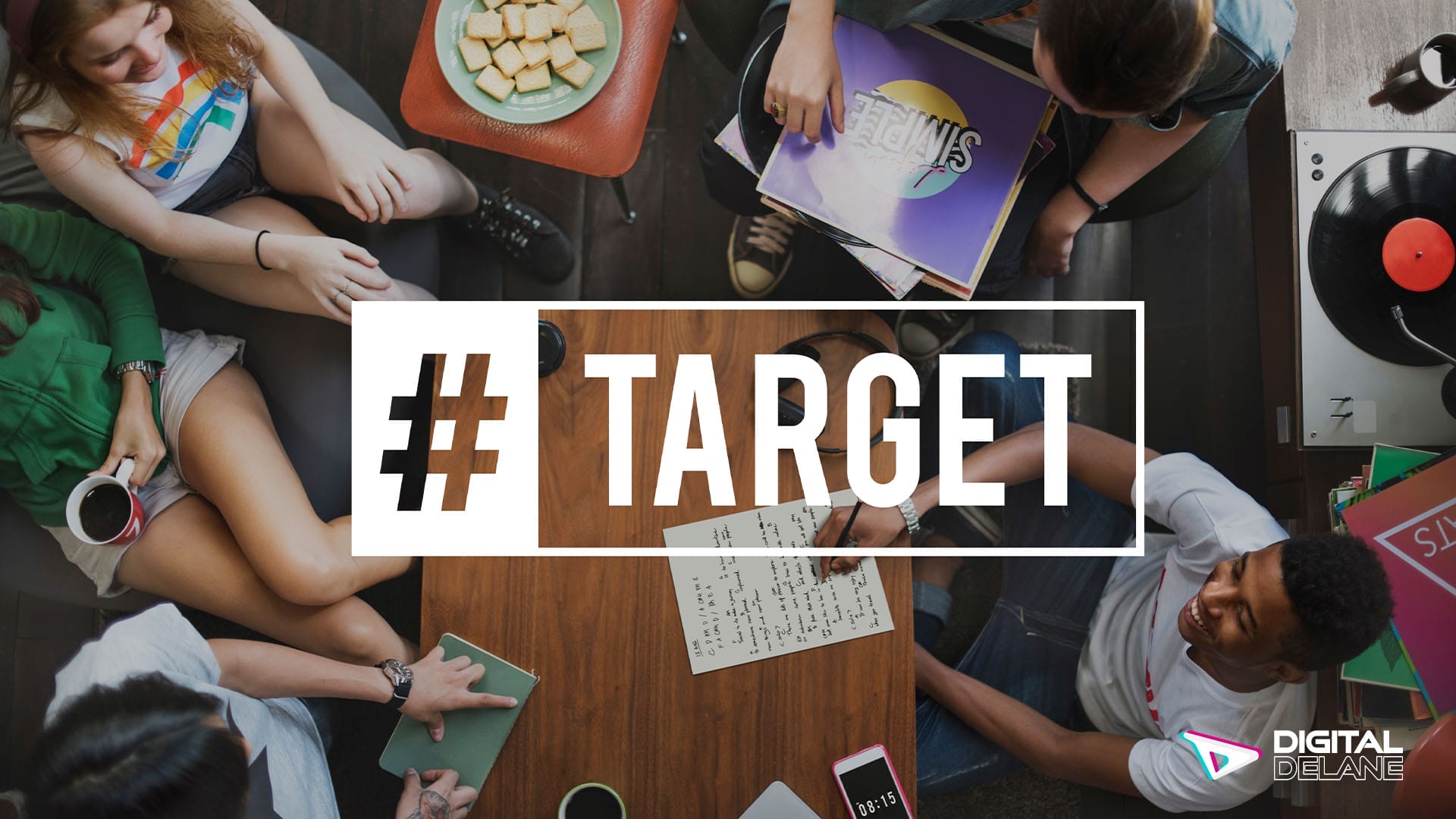

In the realm of nonprofit marketing, understanding your target audience is crucial for effective digital engagement and achieving your organization’s goals. Just as businesses tailor their products and services to specific customer segments, nonprofits need to align their digital marketing efforts with the preferences, interests, and online behavior of their ideal donors, volunteers, and supporters.
Identifying Your Ideal Donor, Volunteer, and Supporter Profiles


Begin by clearly defining your ideal donor, volunteer, and supporter profiles. Consider their demographic factors such as age, gender, location, education level, and income. Delve into their interests, passions, and causes they care about. Understand their online habits, including the social media platforms they frequent, the websites they visit, and the content they consume.
Conducting Research to Understand Demographics, Interests, and Online Behavior


Gain valuable insights into your target audience through a combination of research methods:
-
Surveys: Distribute surveys to your current supporters, volunteers, and those you aspire to reach. Gather information about their demographics, interests, and online behavior.
-
Social media analytics: Utilize social media analytics tools to understand your audience’s engagement patterns, content preferences, and demographic makeup.
-
Website analytics: Analyze website traffic data to identify popular pages, user behavior, and referral sources, providing insights into your audience’s interests and online habits.
-
Industry research: Stay informed about current trends and demographics within your nonprofit’s sector. Utilize industry reports, surveys, and publications to gain a broader understanding of your target audience.
Ready to Discuss Your Project? Chat With Our Marketing Team
Creating Audience Personas to Guide Your Digital Marketing Efforts
Based on your research, develop detailed audience personas that represent your ideal donor, volunteer, and supporter. Each persona should include a name, a brief description, demographic information, interests, online behavior, and motivations for supporting your cause.
These personas will serve as guiding principles for your digital marketing efforts, helping you tailor your content, messaging, and channel selection to resonate effectively with each segment of your target audience.
By understanding your target audience, you can create targeted digital marketing campaigns that are more likely to attract donors, volunteers, and supporters. This will help you achieve your organization’s goals and make a greater impact on the world.
Building a Strong Online Presence


In the digital age, a strong online presence is essential for any nonprofit organization seeking to expand its reach, attract supporters, and achieve its mission. By establishing a user-friendly website, optimizing it for search engines, maintaining a consistent brand identity, leveraging social media, and incorporating video marketing, nonprofits can effectively engage with their target audience and amplify their impact.
Creating a User-Friendly and Informative Website
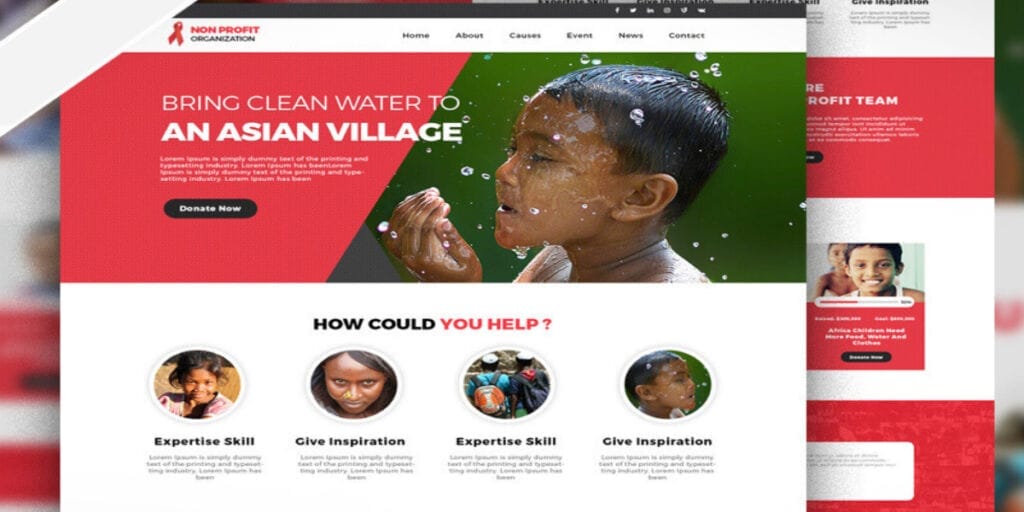

Your website serves as your nonprofit’s digital storefront, making it crucial to provide a seamless user experience. Ensure easy navigation, clear calls to action, and visually appealing content. Highlight your organization’s mission, impact, and opportunities for involvement. Make donation processes simple and secure. Regularly update your website with fresh content to keep visitors engaged and informed.
Optimizing Your Website for Search Engines (SEO)
Search engine optimization (SEO) enhances your website’s visibility in search engine results, increasing the likelihood of potential supporters finding your organization online. Implement effective SEO strategies, including incorporating relevant keywords into your website’s content, building backlinks from reputable websites, and optimizing page loading speed.
Establishing a Consistent Brand Identity Across All Digital Platforms
Maintain a consistent brand identity across all your digital platforms, including your website, social media pages, and email communications. Use the same logo, color scheme, and font style to create a recognizable and cohesive brand presence. This unified branding reinforces your organization’s identity and builds trust with your audience.
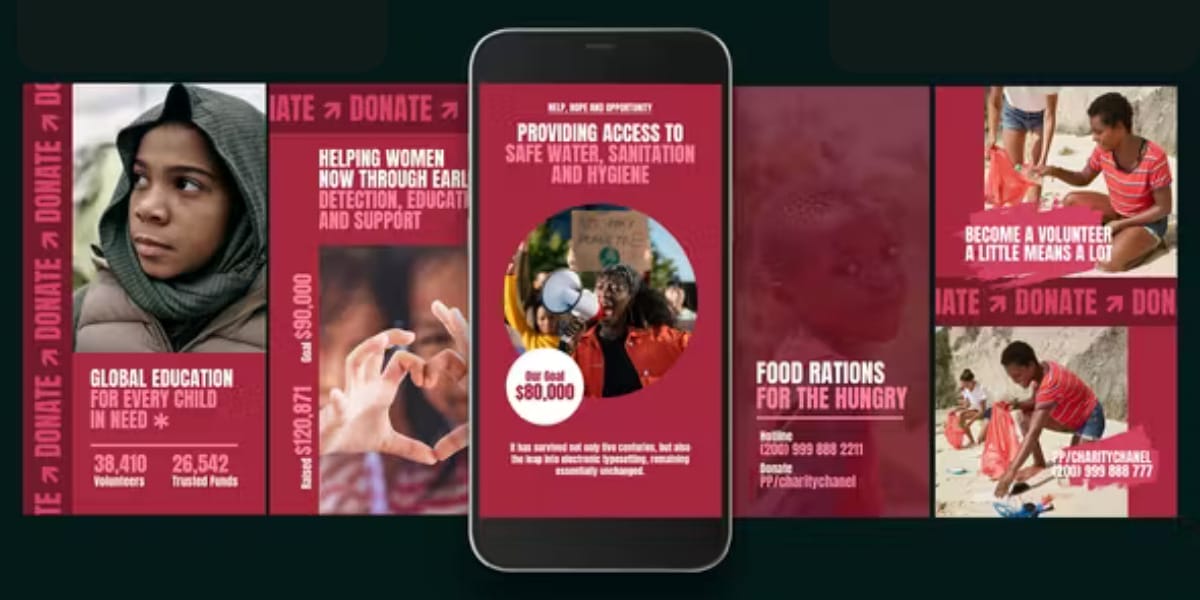

Social media provides a powerful platform for connecting with your target audience, sharing your organization’s story, and promoting your cause. Identify the social media platforms where your ideal supporters are most active. Create engaging content that resonates with their interests, including compelling stories about your work, impact reports, and calls to action. Actively respond to comments and messages to foster meaningful interactions with your audience.
Video marketing has become an increasingly effective way to capture attention, convey emotions, and share compelling stories. Utilize video to showcase your organization’s impact, highlight the work of volunteers, and introduce your team members. Share videos on your website, social media channels, and email campaigns to engage your audience and expand your reach.
By building a strong online presence, nonprofits can effectively connect with their target audience, attract supporters, and achieve their mission in the digital age.
Leveraging Digital Marketing Strategies
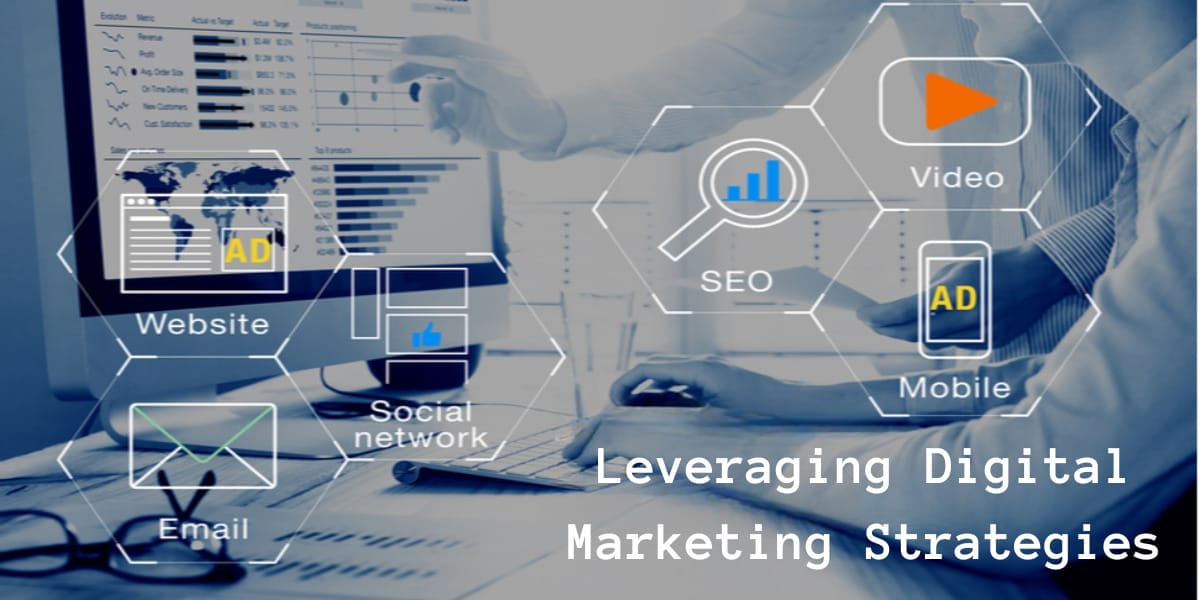

In the competitive landscape of nonprofit marketing, embracing a diverse range of digital marketing strategies is essential for expanding your reach, engaging supporters, and achieving your organizational goals. By employing content marketing, email marketing, search engine marketing (SEM), social media advertising, and influencer marketing, nonprofits can effectively connect with their target audience, amplify their impact, and drive positive change.
Content Marketing: Create High-Quality Content that Resonates with Your Target Audience
Content marketing involves creating and sharing valuable, relevant, and consistent content to attract and retain a clearly defined audience. For nonprofits, this could include blog posts, articles, infographics, videos, and social media content that educates, inspires, and informs your target audience about your mission, impact, and opportunities for involvement.
Ensure that your content is well-researched, informative, and tailored to the interests of your ideal supporters. Share your content across multiple channels, including your website, social media platforms, and email newsletters, to maximize visibility and engagement.
Email Marketing: Nurture Relationships with Your Supporters and Promote Your Cause


Email marketing remains a powerful tool for building relationships with your existing supporters and reaching out to potential ones. Craft personalized email campaigns that provide updates on your organization’s work, share inspiring stories, and encourage donations or volunteering. Segment your email lists to target specific audiences with relevant messaging.
Search Engine Marketing (SEM): Run Paid Campaigns to Reach a Wider Audience and Boost Visibility
Search engine marketing (SEM) allows you to pay for top positions in search engine results, increasing the likelihood of potential supporters finding your organization online when they search for keywords related to your cause. Use SEM to promote your website, donation pages, and event listings. Carefully manage your SEM campaigns to ensure a positive return on investment (ROI).


Social media advertising platforms like Facebook, Instagram, and LinkedIn offer targeted advertising options that allow you to reach specific demographics, interests, and online behaviors. Craft compelling ad campaigns that showcase your organization’s work, promote events, and encourage donations. Use social media advertising to expand your reach beyond your existing followers.
Influencer Marketing: Collaborate with Influential Individuals in Your Field to Reach a Broader Audience


Partner with influential individuals in your field, such as bloggers, social media personalities, or industry experts, to reach a broader audience and enhance your credibility. Identify influencers who align with your organization’s mission and values. Collaborate on content creation, social media campaigns, or influencer-hosted events to leverage their reach and influence.
By leveraging a diverse range of digital marketing strategies, nonprofits can effectively connect with their target audience, attract supporters, and achieve their mission in the digital age. Remember to continuously monitor and evaluate your digital marketing efforts to ensure you’re reaching the right people with the right message.
Measuring and Evaluating Your Success


In the dynamic realm of digital marketing, measuring and evaluating your success is crucial for ensuring your efforts are aligned with your organization’s goals and maximizing their impact. By tracking key performance indicators (KPIs), analyzing website traffic, social media engagement, and donation trends, and using data-driven insights to refine their strategies, nonprofits can optimize their digital marketing campaigns and achieve greater success.
Tracking Key Performance Indicators (KPIs) to Measure Effectiveness
Identify the key performance indicators (KPIs) that align with your organization’s specific goals. Common KPIs for nonprofits include:
-
Website traffic: Measure the number of visitors to your website, including their demographics, referral sources, and page views.
-
Social media engagement: Track likes, comments, shares, and mentions of your organization on social media platforms.
-
Email open rates and click-through rates: Monitor the percentage of recipients who open your emails and click on links within them.
-
Donation conversions: Track the number of donations made through your website or donation pages.
-
Volunteer sign-ups: Measure the number of individuals who sign up to volunteer through your website or online forms.
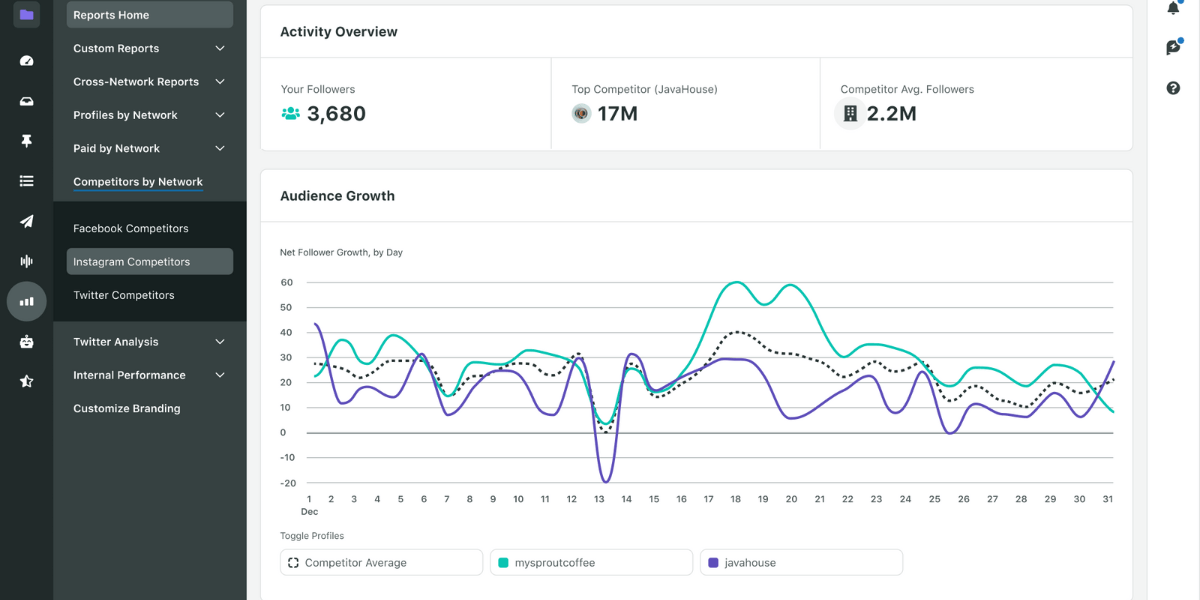

Utilize analytics tools to monitor trends in website traffic, social media engagement, and donation patterns. Identify periods of high or low activity and analyze the factors that may have influenced these trends.
-
Website traffic: Analyze traffic sources, popular pages, and user behavior to understand how visitors interact with your website and identify areas for improvement.
-
Social media engagement: Track engagement metrics for different types of content, platforms, and posting times to determine which strategies resonate best with your audience.
-
Donation trends: Analyze donation amounts, donor demographics, and donation sources to gain insights into your donor base and identify opportunities for growth.
Using Data-Driven Insights to Refine Strategies and Optimize Campaigns
Based on your analysis of KPIs and trends, make data-driven decisions to refine your digital marketing strategies and optimize your campaigns.
-
Identify areas for improvement: Pinpoint areas where your digital marketing efforts are less effective and focus on improving those aspects.
-
Refine content strategy: Adapt your content creation and promotion strategies based on audience preferences and engagement metrics.
-
Optimize ad campaigns: Adjust your targeting, messaging, and bidding strategies for paid advertising campaigns to maximize their effectiveness.
-
Allocate resources effectively: Prioritize digital marketing initiatives that demonstrate the highest ROI and align with your organization’s goals.
By continuously measuring, evaluating, and refining your digital marketing efforts, nonprofits can ensure their campaigns are achieving their desired outcomes, maximizing their impact, and contributing to the success of their organization’s mission.
Do you want to grow faster? Schedule a free consultation call with an expert
Conclusion
In conclusion, digital marketing offers a powerful and accessible toolset for nonprofit organizations to amplify their impact and achieve their mission. By embracing the opportunities presented by the digital landscape, nonprofits can expand their reach, engage with new supporters, and drive positive change.


As you embark on your nonprofit’s digital marketing journey, remember that consistency, authenticity, and a data-driven approach are key to success. Regularly update your website and social media channels with engaging content, cultivate meaningful interactions with your audience, and continuously evaluate your strategies to maximize their effectiveness.
The digital revolution has transformed the way we connect, communicate, and engage with the world around us. Nonprofits that leverage the power of digital marketing can harness this transformative force to advance their causes, empower their communities, and make a lasting impact on the world.


